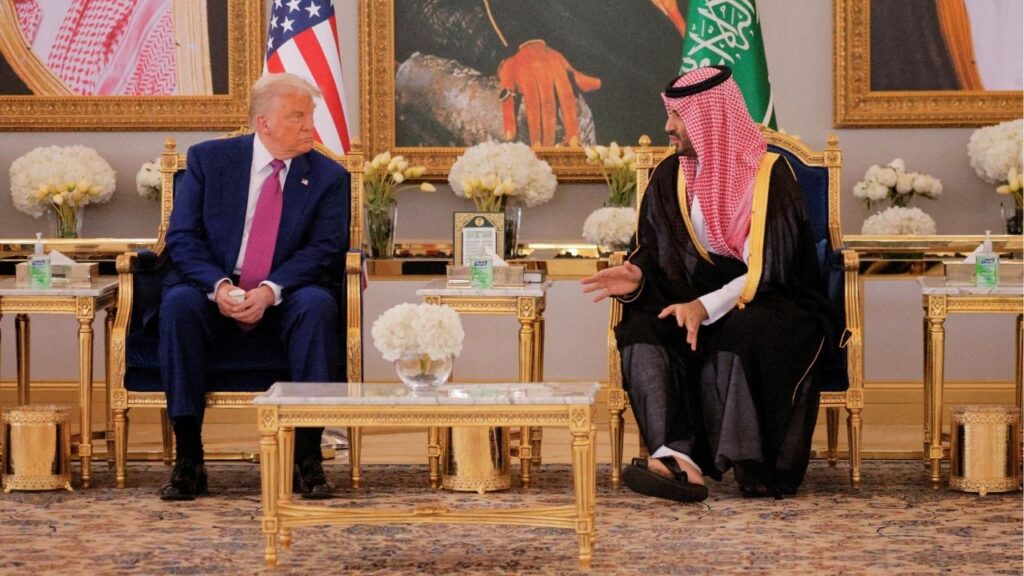A Novel That Explores the Silencing of Palestinian Trauma
Share
[aggregation-styles]
The New York Times
The New York Times
CHILDREN OF THE GHETTO
My Name Is Adam
By Elias Khoury
Translated by Humphrey Davies
Adam Dannoun, the protagonist of Elias Khoury’s powerful new novel, calls himself a child of the ghetto. He does not mean the Warsaw ghetto — although, growing up in the newly established state of Israel, he allows his university colleagues to make that assumption. He means the “ghetto” of the Palestinian town of Lydda, created by Jewish forces who uprooted tens of thousands of Palestinians on a death march in one of the bloodiest massacres of the 1948 Nakba. (That term, which Arabs use for the founding of the Jewish state, means “catastrophe.”) Adam, a baby at the time, was one of those who remained.
Through layers and levels of storytelling — we are in familiar Khoury territory here, moving in and out of various narrations — “Children of the Ghetto” ponders the silence of those who stayed in Lydda. To survive in the new state they lived “as invisible people.” Why were they silent — to avoid being killed? Because they had given up hope? Or because what they had gone through was unspeakable, an experience for which “silence is more eloquent than words”?
My Name Is Adam
By Elias Khoury
Translated by Humphrey Davies
Adam Dannoun, the protagonist of Elias Khoury’s powerful new novel, calls himself a child of the ghetto. He does not mean the Warsaw ghetto — although, growing up in the newly established state of Israel, he allows his university colleagues to make that assumption. He means the “ghetto” of the Palestinian town of Lydda, created by Jewish forces who uprooted tens of thousands of Palestinians on a death march in one of the bloodiest massacres of the 1948 Nakba. (That term, which Arabs use for the founding of the Jewish state, means “catastrophe.”) Adam, a baby at the time, was one of those who remained.
Through layers and levels of storytelling — we are in familiar Khoury territory here, moving in and out of various narrations — “Children of the Ghetto” ponders the silence of those who stayed in Lydda. To survive in the new state they lived “as invisible people.” Why were they silent — to avoid being killed? Because they had given up hope? Or because what they had gone through was unspeakable, an experience for which “silence is more eloquent than words”?
By Isabella Hammad | 21 June 2019
RELATED TOPICS:
Caltrans’ Response to Homeless Encampments Is Lagging, Cities Complain
Housing /
1 hour ago
Democrats Seeking California Governorship Strut Their Stuff for Union Leaders
Opinion /
2 hours ago
Republicans Face Internal Disagreements Over Trump Tax Cut Package
Politics /
2 hours ago
Once in Sync, Trump and Netanyahu Now Show Signs of Division
World /
3 hours ago
Has the California Dream Become a Mirage?
Featured /
3 hours ago
Valley Crime Stoppers’ Most Wanted Person of the Day: Jeffrey Allen Burrus
Crime /
3 hours ago
Jayson Tatum Carried off Floor With Right Leg Injury and Celtics Star Will Have MRI
Sports /
3 hours ago
‘I Never Said He Called My Son the N-Word.’ Fresno Unified Trustee Thomas Tries to Erase Accusation Against Former Bullard Coach
After accusing a former Bullard High School football coach of calling her son the N-word, Fresno Unified trustee Keshia Thomas tried to walk...
Courts /
30 minutes ago
Categories
Latest
Videos

Courts /
30 minutes ago
‘I Never Said He Called My Son the N-Word.’ Fresno Unified Trustee Thomas Tries to Erase Accusation Against Former Bullard Coach

Housing /
1 hour ago
Caltrans’ Response to Homeless Encampments Is Lagging, Cities Complain

Opinion /
2 hours ago
Democrats Seeking California Governorship Strut Their Stuff for Union Leaders

Politics /
2 hours ago














